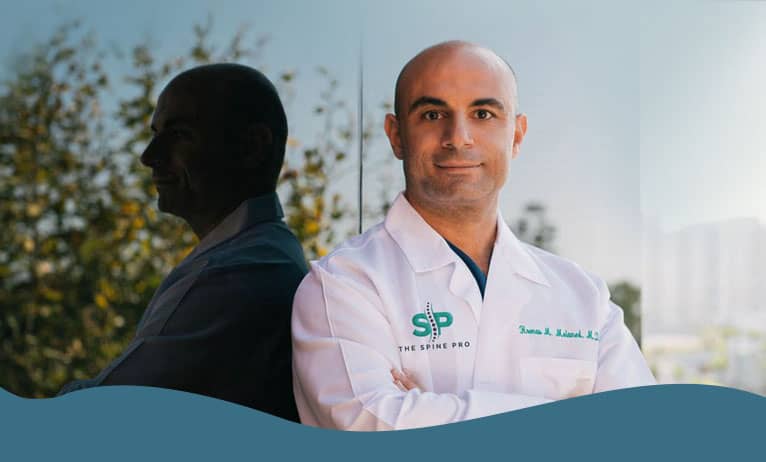What are Some Symptoms of a Herniated Disc?
Pain in your lower back can have a significant effect on your everyday life.
The lumbar spine, which is the area between your pelvis and thoracic cage, is the largest movable segment of the vertebral column and is highly vulnerable to injury and disorders. A herniated disc can cause a number of problems in addition to an achy back. If it is pressing on a nerve, you may have pain, numbness or weakness around it. If you have a herniated disc you could also experience leg pain, usually on one side, due to the herniation’s position and size. It could start suddenly or gradually, so if you have any pain in your back that starts to spread or get worse, be sure to talk with a spine professional to see if a herniated disc is the cause. How is a Herniated Disc Caused?
A more common issue with the herniated disc is when one of the intervertebral discs is protruding into the spinal canal and applies pressure on a nerve root. It happens most often in your lumbar spine and can be caused by normal wear and tear of the disc. As you age, your discs are not as cushioned and flexible as they used to be. A herniated disc may also be caused by a direct injury to your spine, such as from a hit while playing football or falling off of your bicycle. An injury can cause tears or cracks in the outer layer of the disc and lead to the disc breaking open. You can learn more about herniated discs and what to watch for if you have back pain by talking with your specialist during your next appointment. Herniated discs are usually treated with anti-inflammatory medicine, physical therapy or steroid injections. Surgery is usually not required.






